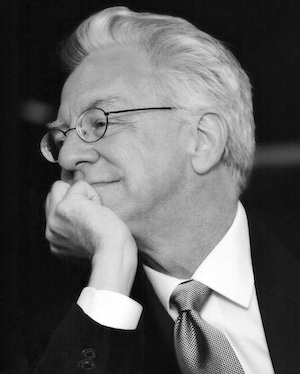By Monica Sager
James Klagge (ΦBK, College of William and Mary) first dipped his toe into the realm of philosophy from a class at the College of William and Mary taught by Jesse Bohl. Inspired to learn more and pushed by Bohl with a class specifically on Ludwig Wittgenstein to do so, Klagge studied Wittgenstein’s Tractatus Logico-Philosophicus in college.
“It’s very short and cryptic and sort of mysterious,” Klagge said. “At the end of it he made statements that some people have called mystical…The book is a kind of puzzle in a way, but it’s also been very influential.”
Wittgenstein, who wrote the book as a soldier in World War I, is considered one of the greatest philosophers of the modern era. Not only has Wittgenstein’s book been considered one of the top contributions to Western philosophy in the 20th century but it also has influenced Klagge with his own studies. Klagge went to graduate school at the University of California, Los Angeles and started to gather information about Wittgenstein’s life and experiences, hoping to form a deeper comprehension of the Tractatus and the context for it.
Most recently, Klagge published two books about Wittgenstein and an in-depth analysis of his works — Tractatus in Context: The Essential Background for Appreciating Wittgenstein’s Tractatus Logico-Philosophicus (Routledge, 2021), which is a commentary and sourcebook, and Wittgenstein’s Artillery: Philosophy as Poetry (MIT Press, 2021), which is about Wittgenstein’s attitude and evolution over time. Klagge’s earlier works include a brief but authoritative biography, Simply Wittgenstein (Simply Charly, 2016).
Particularly with Wittgenstein’s Artillery, Klagge said his liberal arts education has influenced his writing. He discusses how the term “poetry” is used broadly to mean all of literature or “literary writing,” as it is based on the German term “dichtung.” Klagge writes in the book about narratives and stories and what kind of role they can have in philosophical problems and perspective changing.
“I think I brought a broad background to understanding Wittgenstein that not everybody does,” Klagge said. “He doesn’t offer much guidance to who he’s responding to or where he’s trying to go with this, so I think there are answers for these questions, but they don’t come from the books as much as the context of the book: what Wittgenstein had been reading before writing the book, what Wittgenstein said in letters and lectures after he had written the book.”
Klagge has taught at Virginia Polytechnic Institute and State University for 37 years now and is able to continue his study of Wittgenstein with his master’s and undergraduate students in a seminar.
“It does feel like it tied it together in a certain way,” Klagge said. “It really mattered to me that my students understood the book and got the context of what he was talking about.”
Klagge also mentioned that his work was able to encompass the studies and philosophies of Phi Beta Kappa as well. Since Virginia Tech holds an emphasis on science and cyber research, Klagge is challenged with providing a more liberal arts context for students with his studies. With the leading autonomous car program at the school, Klagge took the studies into a different context and looked at what’s called “trolly problems” with students, understanding the ethical ramifications of technology and the consequences that come with it.
“We have a lot of bright students, and a lot of them are interested in the ethical aspects of their program,” Klagge said. “A few years ago I created a new course called Ethical Perspectives on Artificial Intelligence. That gets students from engineering and computer science….Ethics is certainly one of the things liberal arts brings to the university, regardless of the focus of the students.”
Monica Sager is a graduate student at Clark University studying communications. She was inducted into Phi Beta Kappa as an undergraduate there. She completed her Bachelor’s in psychology and student-designed journalism, with a minor in English, in June 2021. Clark University is home to the Lambda of Massachusetts chapter of Phi Beta Kappa.




